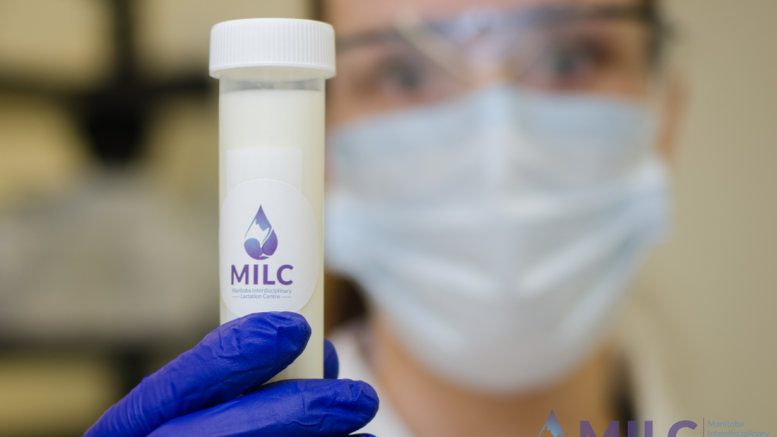A University of Manitoba researcher has been named one of Reach Magazine’s top five rising star researchers. Meghan Azad, associate professor in the department of pediatrics and child health, is co-directing the Manitoba Interdisciplinary Lactation Centre (MILC) alongside Nathan Nickel.
Reach is distributed by the Canadian Institute for Advanced Research (CIFAR), a Canada-based association of policy makers, academics and citizens. CIFAR’s Reach Magazine is an annual magazine that profiles the members of the international research community. The magazine identified five rising stars among early career science researchers. Azad, the proclaimed “children’s health leader,” was named among these innovators in the winter 2022 issue.
Azad’s research has also caught the attention of a certain billionaire software mogul. The Bill & Melinda Gates Foundation has funded an international research project exploring the impact of breast milk in different geographical settings.
Azad told Reach Magazine about her experience in part of an asthma research study in her childhood as the impetus for her career in science. Although she has maintained her research interest in chronic childhood illness, her path has been anything but straightforward.
Azad completed a PhD in biochemistry and genetics, studying cancer and hypoxia cell signalling before deciding to change course.
“I was learning epidemiology and more data analysis, which I really enjoyed,” Azad said.
“And so, whilst I was doing my [postdoctoral research], I did a master’s in epidemiology. It was at that time that I got introduced to topics around infant health and pediatrics.”
During her postdoc, Azad was involved in a research project that recruited participants locally in Alberta and at a Manitoba site. A few years later, the Manitoba site recruited her. The study focused on identifying factors in early life — including genetic and environmental factors — that contribute to shaping health outcomes for children. The study was particularly interested in allergies and asthma. The study followed children as they grew to track changes in their health.
Meanwhile, the researchers became interested in the emerging field of the microbiome research of babies in their first year of life. Babies are born sterile because any microorganisms exposed to the fetus while it is growing could cause a fatal infection. Babies first interact with micro-organisms during or after birth.
The researchers found the method of delivery — vaginally or by caesarean section — along with whether babies are breastfed or formula-fed are defining factors in the baby’s microbiome. A healthy gut microbiome is essential for good health.
MILC hosts the human milk biorepository, allowing lactating mothers to donate excess breast milk in an attempt to reduce the biological and social factors that limit mothers’ ability to provide breast milk to infants.
“We’re looking at a way to match donor milk,” Azad said.
“For very small preterm babies, having human milk is really important because their gut is immature. The best-case scenario would be their mother’s own milk, but sometimes mothers aren’t producing milk yet when they have a very premature baby. In that case, there can be donor milk available. Moms who have healthy babies and are making extra milk can donate it to a milk bank. That milk can be processed and then given to babies who need it.”
Azad described how traditional methods of breast-milk donation may be inadequate.
“If you think of blood donation, we don’t take all the donor blood and mix it all together and give it out to everyone,” Azad said.
“We’re very specific in matching the blood type of donor to the recipient.”
Azad attributes her success to the team of researchers she works with, along with the thousands of participants involved in her projects over the years.
Azad works with postdoctoral fellow Merilee Brockway to determine if a more individualized approach would be beneficial to infant health. She also works alongside MILC operations director Natalie Rodriguez, who specializes in business and operations and has been crucial to the success of the centre.
“As scientists, we’re trained to do science, not to be managers or do HR and budgets,” Azad said.
Ultimately, any research centre is dependent on participants.
“We couldn’t do any of this research without the moms, babies and families who contribute their time, data and samples, especially in the type of research we’re doing in the longitudinal cohorts,” Azad said.
“It’s a long-term commitment.”



